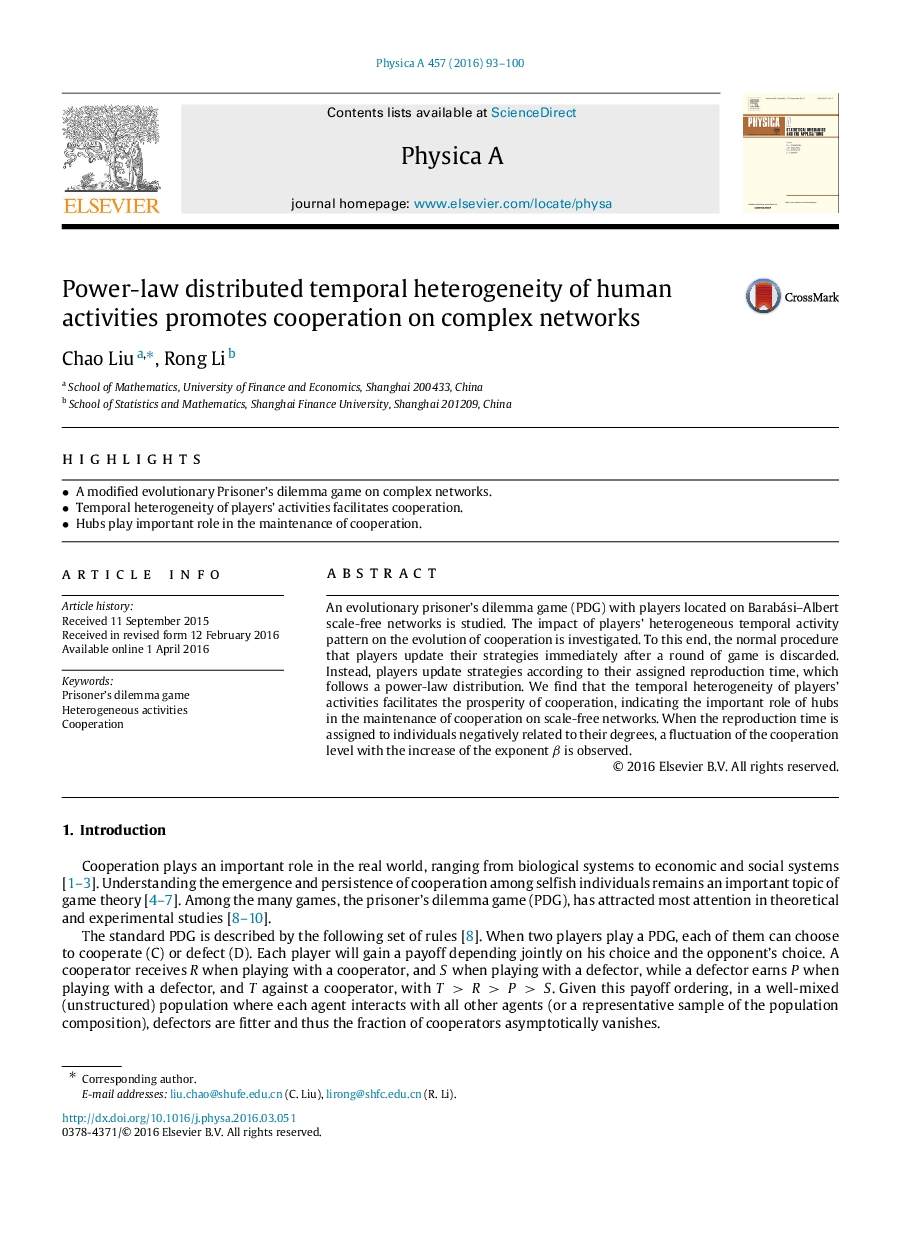| Article ID | Journal | Published Year | Pages | File Type |
|---|---|---|---|---|
| 7377825 | Physica A: Statistical Mechanics and its Applications | 2016 | 8 Pages |
Abstract
An evolutionary prisoner's dilemma game (PDG) with players located on Barabási-Albert scale-free networks is studied. The impact of players' heterogeneous temporal activity pattern on the evolution of cooperation is investigated. To this end, the normal procedure that players update their strategies immediately after a round of game is discarded. Instead, players update strategies according to their assigned reproduction time, which follows a power-law distribution. We find that the temporal heterogeneity of players' activities facilitates the prosperity of cooperation, indicating the important role of hubs in the maintenance of cooperation on scale-free networks. When the reproduction time is assigned to individuals negatively related to their degrees, a fluctuation of the cooperation level with the increase of the exponent β is observed.
Keywords
Related Topics
Physical Sciences and Engineering
Mathematics
Mathematical Physics
Authors
Chao Liu, Rong Li,
